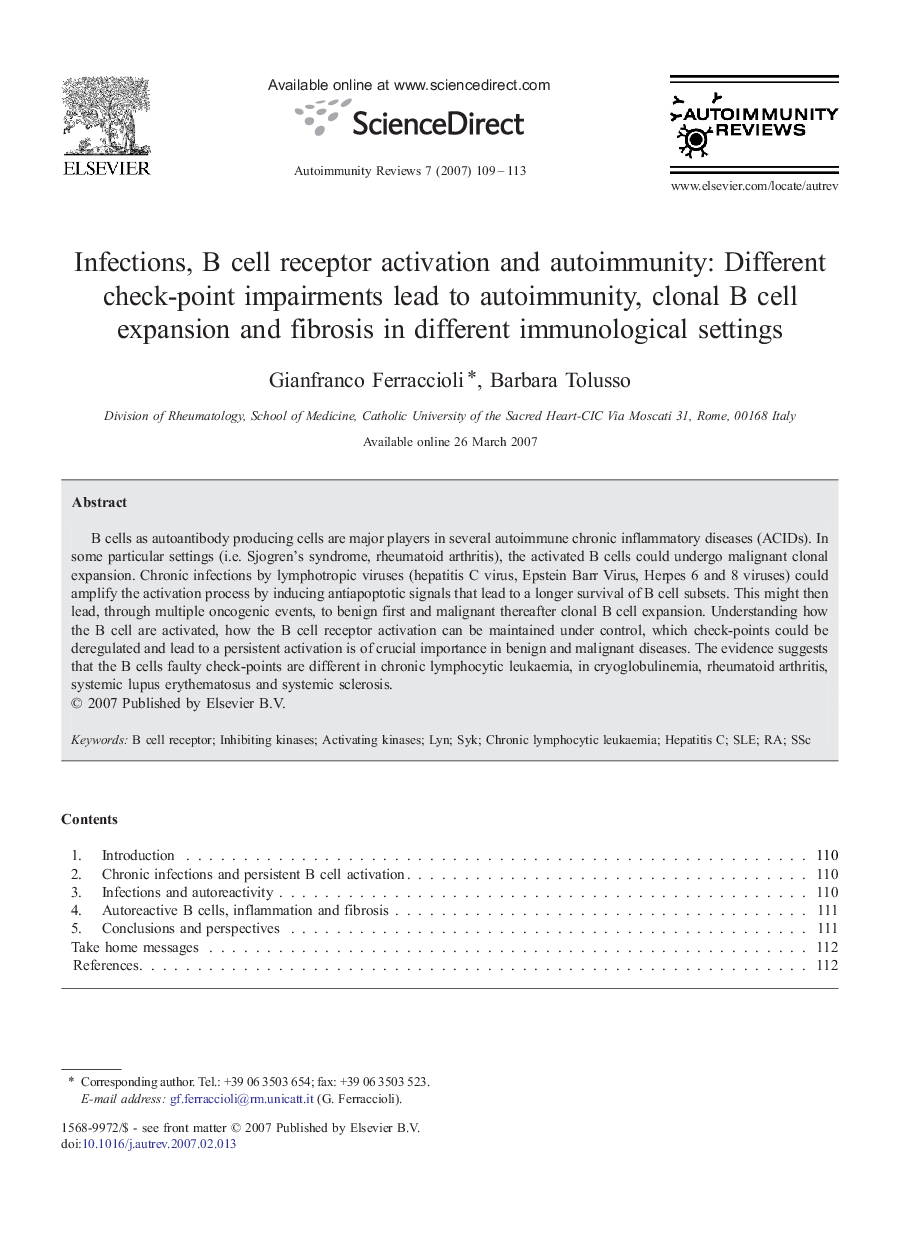| Article ID | Journal | Published Year | Pages | File Type |
|---|---|---|---|---|
| 3342521 | Autoimmunity Reviews | 2007 | 5 Pages |
B cells as autoantibody producing cells are major players in several autoimmune chronic inflammatory diseases (ACIDs). In some particular settings (i.e. Sjogren's syndrome, rheumatoid arthritis), the activated B cells could undergo malignant clonal expansion. Chronic infections by lymphotropic viruses (hepatitis C virus, Epstein Barr Virus, Herpes 6 and 8 viruses) could amplify the activation process by inducing antiapoptotic signals that lead to a longer survival of B cell subsets. This might then lead, through multiple oncogenic events, to benign first and malignant thereafter clonal B cell expansion. Understanding how the B cell are activated, how the B cell receptor activation can be maintained under control, which check-points could be deregulated and lead to a persistent activation is of crucial importance in benign and malignant diseases. The evidence suggests that the B cells faulty check-points are different in chronic lymphocytic leukaemia, in cryoglobulinemia, rheumatoid arthritis, systemic lupus erythematosus and systemic sclerosis.
